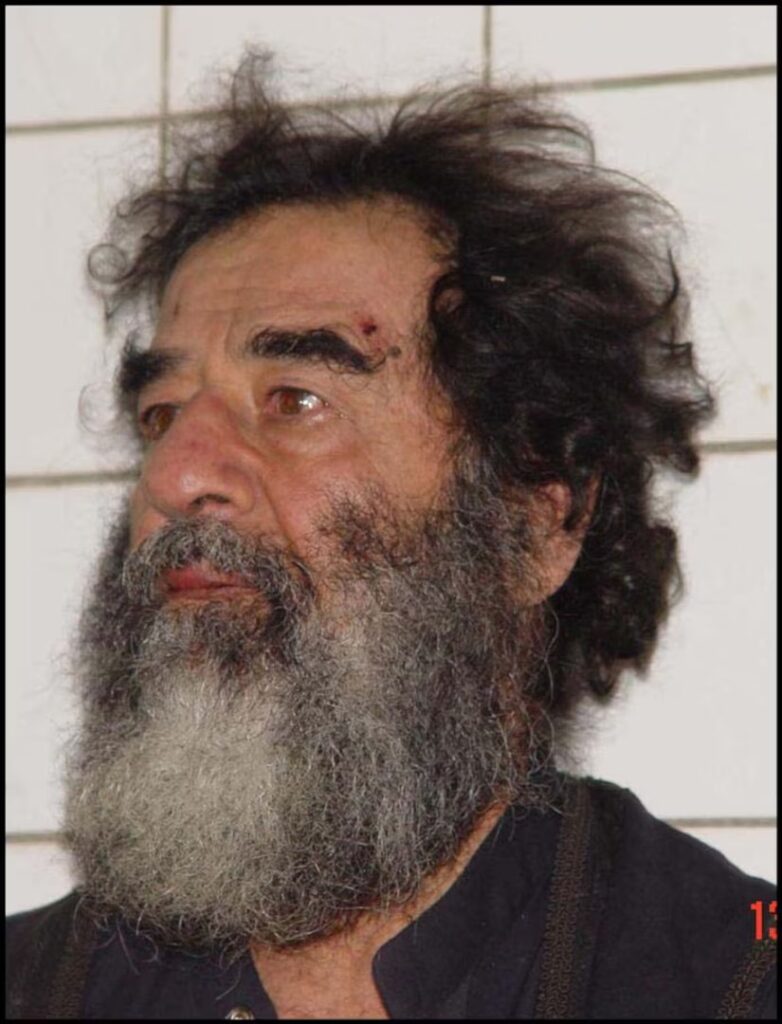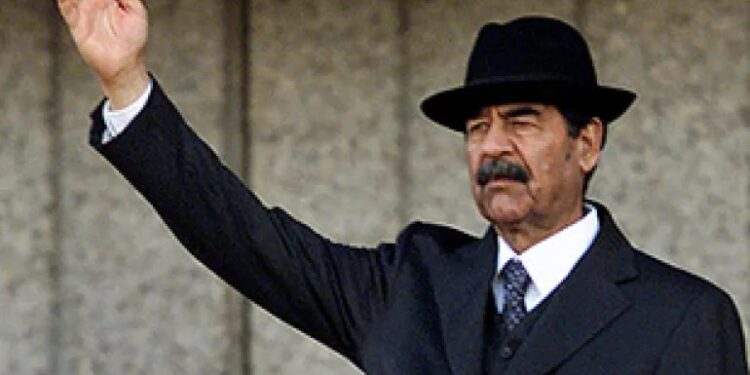Saddam Hussein was a controversial and brutal dictator who ruled Iraq from 1979 to 2003, leaving an indelible mark on the country’s history and the broader geopolitical landscape of the Middle East. Born in 1937 to a poor peasant family near Tikrit, Hussein rose through the ranks of the Ba’ath Party, ultimately becoming the President of Iraq and establishing one of the most oppressive regimes in modern history.

Hussein’s ascent to power was characterized by political manipulation and ruthless tactics. He became the de facto leader of Iraq in 1977 and assumed the presidency in 1979, quickly consolidating his power by eliminating potential rivals and establishing a cult of personality. His government was marked by extreme authoritarianism, with widespread human rights abuses, political repression, and systematic elimination of opposition.
One of the most significant and destructive periods of Hussein’s rule was the Iran-Iraq War (1980-1988), a devastating conflict that resulted in hundreds of thousands of casualties on both sides. The war was initiated by Hussein’s invasion of Iran, driven by territorial ambitions and regional power struggles. The conflict ended in a stalemate but severely weakened both nations.
Hussein’s most notorious international action was the invasion of Kuwait in 1990, which prompted the first Gulf War. The United States and a coalition of international forces swiftly defeated Iraqi forces, pushing them out of Kuwait and imposing severe economic sanctions on Iraq. These sanctions had devastating effects on the Iraqi population, causing widespread poverty and suffering.
The regime was particularly brutal towards minority groups within Iraq. Hussein’s government conducted genocidal campaigns against Kurdish populations, most infamously through the Anfal Campaign, which included the use of chemical weapons in attacks like the Halabja massacre in 1988, where thousands of civilians were killed.
In 2003, a U.S.-led coalition invaded Iraq, toppling Hussein’s regime. After a lengthy manhunt, he was captured in December 2003, tried by an Iraqi court for crimes against humanity, and executed by hanging on December 30, 2005.
Hussein’s legacy is one of extreme violence, political oppression, and destruction. His rule was characterized by a complete disregard for human rights, systematic torture, and the elimination of political opponents. The impact of his regime continues to reverberate through Iraq and the entire Middle East, serving as a stark reminder of the devastating consequences of unchecked authoritarian power.
newshub



Recent Comments